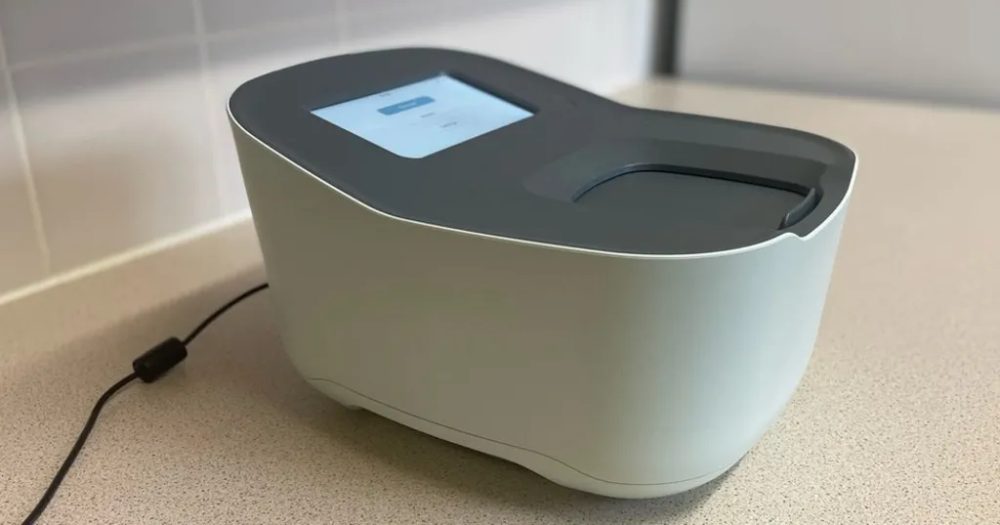Test-at-home kit for cancer patients approved in the UK

A new device designed to minimize the time cancer patients spend in hospitals has received regulatory approval in the UK. Called Liberty, it allows patients to perform blood tests and upload the results from the comfort of their homes, without the need for supervision.
How does it work?
The Liberty device, approximately the size of a small printer, enables patients to take blood samples using a simple finger prick. The blood sample is then analyzed by the device, and the results are sent directly to the hospital teams.
This allows for continuous monitoring of crucial health indicators, such as hemoglobin levels and white blood cell counts, without requiring patients to visit the hospital frequently.
Why does it matter?
This innovation is significant because it offers cancer patients a way to reduce the physically draining hospital visits that are typically necessary for routine blood tests. As Lynn Thompson, a trial patient, described, "I just fell in love with the machine to be really honest with you. It was so simple to follow and to use." The convenience of home testing also alleviates anxiety for patients, particularly those who have a fear of needles.
In addition, the Liberty device has the potential to boost the UK's NHS productivity by reducing the need for staffed phlebotomy units.
According to Sacha Howell, a senior lecturer in medical oncology at the University of Manchester, "If the patients were able to simply do them themselves at home, that would result in significant efficiencies."
In a nutshell, the Liberty device represents a promising advancement in cancer care, offering convenience for patients and potential efficiencies for healthcare systems.
What's next?
The device was trialed at The Christie, one of Europe's largest cancer treatment centers, and will now be deployed at 12 NHS sites. The trials have shown promising results, although they have involved a relatively small number of patients — 22 in a home study and 470 in regulatory trials.
Despite these promising results, Cancer Research UK advises caution, noting that more research is needed before the device can be widely adopted in cancer care. "The regulatory approval does not give indications of effectiveness or clinical utility at this stage - those questions would need to be addressed in future clinical trials of the device before it could be used more widely," the charity stated.
On the other hand, Dr. Toby Basey-Fisher, the CEO of Entia — the company behind Liberty — is optimistic about its potential impact. "By providing insights into patients' health status, the device empowers healthcare professionals to pre-emptively address complications, reducing hospitalizations and treatment interruptions," he said.
💡Did you know?
You can take your DHArab experience to the next level with our Premium Membership.👉 Click here to learn more
🛠️Featured tool
 Easy-Peasy
Easy-Peasy
An all-in-one AI tool offering the ability to build no-code AI Bots, create articles & social media posts, convert text into natural speech in 40+ languages, create and edit images, generate videos, and more.
👉 Click here to learn more


